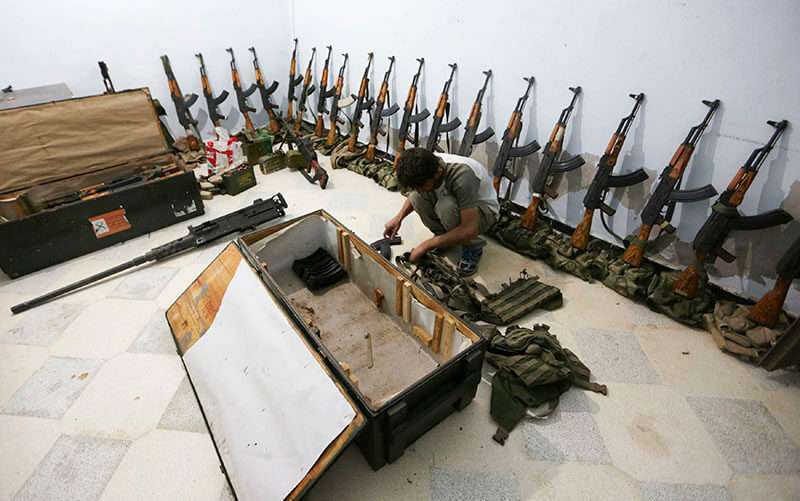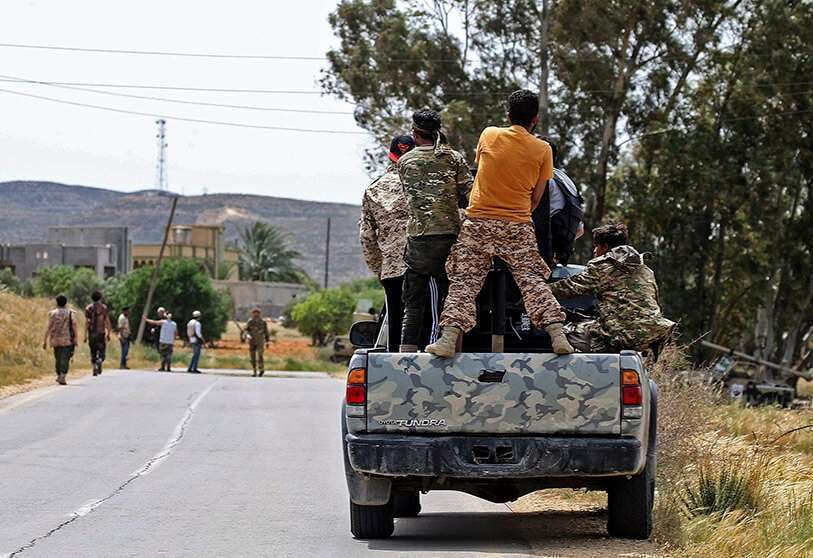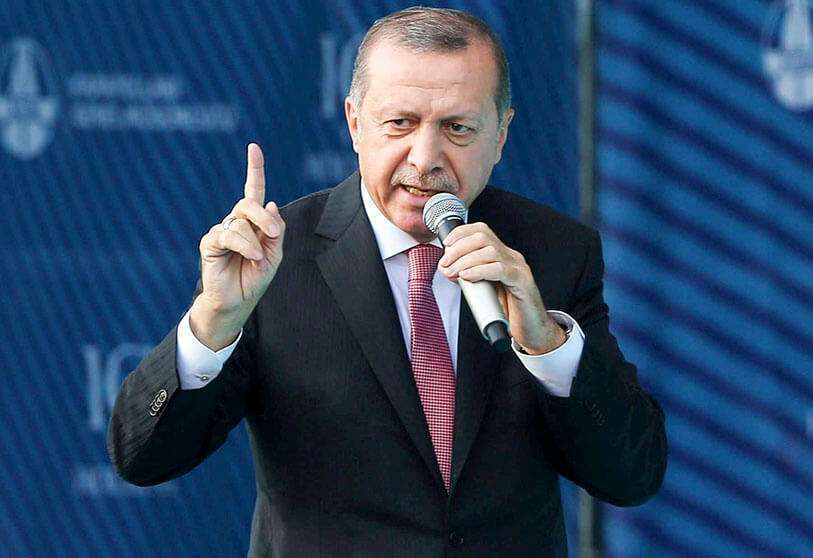Rising tensions in Turkish positions in Libya provoke a new wave of defections

Rising tensions between Turkish mercenaries and the commanders of pro-National Accord Government (GNA) militias have forced 700 Syrian mercenaries to leave their ranks, claiming they disagreed with the faction's involvement in the war in Libya, according to the Syrian Observatory for Human Rights (SOHR), a London-based organization with a network of informants on Syrian soil. It should be noted, in this regard, that the militiamen are part of the Sultan Murad network. With this act, these fighters have shown their discontent with the faction's policy of sending fighters to Libya to fight alongside the Tripoli-based Al-Sarraj Government.
This discontent is compounded by the various disputes that have been taking place over the past few weeks in Syria between the brigade leaders on the one hand and the faction leader, on the other. "These disputes are caused by the differences between their actions and the faction's leadership policy," SOHR said. Thus, about 70 people have withdrawn from their positions in the Ras al-Ain camp, northwest of Hasaka, where they were fighting the Syrian army.

At the end of April, The Arab Weekly newspaper reported that Syrian mercenaries in Libya, sent by Turkey and supported by Qatar and the Muslim Brotherhood, had begun to rise up against Turkish officers and militia leaders loyal to the GNA.
In addition to the discontent over their differences when it comes to operating in the Libyan conflict, there is also the fact that Turkey has reduced the salaries of some of these mercenaries. In April, the SOHR released an audio recording in which a Syrian fighter asked all those who were considering going to Libya to support Sarraj's militias not to do so, as Turkey "did not pay the salary", according to information published by Al Masdar News.

Clashes between the mercenaries and militias loyal to the GNA have continued since then, increasing tension on the front lines of the battle. The MENA Research and Study Centre - Middle East & North Africa - has reported in the last hours that the crisis between Turkey and the Turkish mercenaries goes beyond the defection of these 700 Syrian fighters, as several human rights organizations have indicated that another faction called Faylaq al-Rahman has also rejected the Turkish request to send fighters to Libya, an event that has aroused the fury of the Eurasian nation, which immediately blocked funding to this faction.
The SOHR has said that the Turkish regime, led by Recep Tayyip Erdogan, continues to send Syrian mercenaries to support the GNA militias and fight against the Libyan National Army (LNA), led by Field Marshal Khalifa Haftar, who is supported by the United Arab Emirates, Egypt and Russia.

Furthermore, according to this latest update, at least 261 of the 9000 mercenaries fighting in Libya have lost their lives in the last few weeks. The SOHR also reported that they were "monitoring the arrival of hundreds of Syrian fighters in Libya through Turkey. The number of recruits who have arrived on Libyan soil so far has reached 7,850, including a group of non-Syrian mercenaries, while about 3,000 recruits have been transferred to Turkish military camps for training," they added.
Among the pro-Turkish militia fighters reportedly killed in military operations in Libya are mercenaries from the al-Muatasem Brigade, and the Sultan Murad Division, the Northern Hawks Brigade, al-Hazmat and Suleiman Shah, according to the London-based organization. The analysts consulted by Mena Media Monitor also warn that new armed clashes between foreign mercenaries and Libyan fighters could break out in the coming days.

It should be recalled at this point that Erdogan has seen the conflict in Libya as an opportunity to increase his influence in the region. Violence in the North African nation has devastated the oil-producing country since the fall of dictator Muammar Gaddafi. Defections from Turkishbacked militias have occurred during a week in which an apparent and tense calm has settled in Libya, after Libyan National Army (LNA) spokesman Ahmed al-Mismari announced the cessation of all military operations during the holy month of Ramadan, warning that "any breach of the armistice will be the LNA's own response to any kind of attack".








